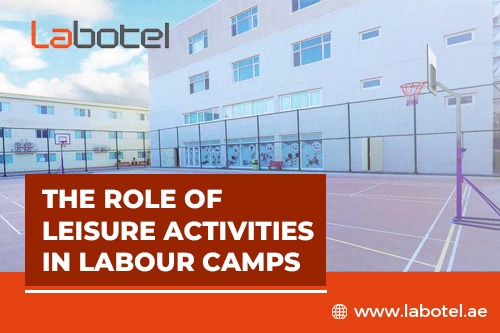The Role of Leisure Activities in Labour Camps

In labour camps, workers live far from their homeland, families, and support systems. Their days often follow a repetitive cycle—wake up, go to work, return to the camp, and start over. While this routine is necessary, over time it can take a toll on their mental peace and emotional well-being. The lack of personal connection, downtime, and outlets for expression can lead to stress, loneliness, and low morale. This is where leisure activities become essential—not just for entertainment, but as a much-needed release that helps workers recharge, connect with others, and feel more human.
Why Leisure Matters in Labour Camps
Work in labour-intensive industries is not just physically taxing—it’s emotionally draining too. Long hours, limited personal space, and lack of social interaction can lead to feelings of isolation, anxiety, and even depression. This is where structured and meaningful leisure activities become vital.
Incorporating leisure into daily life isn't about luxury; it's about balance. For labourers, these moments of play or relaxation offer more than just entertainment—they offer relief, connection, and recovery.
Mental Health and the Psychology Behind Leisure
Psychologically, leisure is linked to a variety of positive outcomes. Research shows that engaging in hobbies or light recreation helps reduce cortisol levels, the hormone associated with stress. It also promotes the release of endorphins, which help improve mood and energy levels.
For workers in labour camps, where stress is often constant and personal outlets are few, the availability of leisure spaces acts as a buffer against burnout. Whether it’s a weekly cricket match, evening music sessions, or simply access to a TV lounge, these moments can significantly impact mental well-being.
Leisure also reinforces a sense of identity and personal agency. It allows individuals to make choices, express themselves, and engage with their peers in non-work contexts—something that’s often missing from rigid work routines.
Social Connection and Reduced Loneliness
One of the biggest psychological challenges in labour camps is social isolation. Many workers have left behind families and familiar support systems. Structured leisure activities like group games, sports tournaments, or movie nights help rebuild that sense of community.
When workers share experiences outside of work, they form friendships and support networks. This social bonding is not only beneficial for mental health but also contributes to a more cooperative and peaceful living environment.
Physical Benefits Add to the Mental Impact
Activities like walking, playing sports, or yoga serve a dual purpose. They provide exercise, which supports both mental and physical health, and helps release built-up tension from the body. Workers who engage in regular physical activity tend to sleep better, experience fewer mood swings, and report lower levels of fatigue and anxiety.
In environments where physical labour is constant, “active leisure” might seem counterintuitive. But the key difference is choice. When workers voluntarily participate in physical activity for fun or relaxation, the psychological benefits are far greater than those from job-related exertion.
Types of Leisure Activities that Make a Difference
Here are some impactful leisure initiatives that can be integrated into labour accommodations:
- Sports and games: Cricket, volleyball, carrom, and table tennis encourage teamwork and physical engagement.
- Creative outlets: Art, music, and cultural nights allow for self-expression and emotional release.
- Entertainment areas: TV lounges, movie screenings, or community libraries offer passive but relaxing downtime.
- Wellness programs: Yoga, meditation, or guided breathing sessions can help workers manage stress and sleep better.
- Celebration of festivals and cultural events: These foster inclusion and a sense of belonging.
When these leisure activities are made easily accessible, participation tends to increase naturally.
Employer Responsibility and Positive Outcomes
Including leisure options in worker accommodations is more than a “nice to have”—it’s becoming a best practice in employee welfare. Companies that invest in the mental and emotional health of their workforce often see lower turnover, fewer sick days, and higher overall satisfaction.
Happy, well-rested workers are also safer and more productive on the job. In the long term, building leisure into labour camp life is a smart, human-first decision for any organisation.
Labotel’s Approach to Leisure and Wellness
At Labotel, we understand that well-being doesn’t end with clean rooms and safe kitchens. That’s why our accommodation facilities go a step further by offering thoughtfully designed leisure areas for relaxation and social interaction.
We believe that every worker deserves a place where they can unwind, connect, and feel like themselves—beyond just being an employee. It’s this belief that shapes our commitment to wellness and leisure in our labour accommodations.
